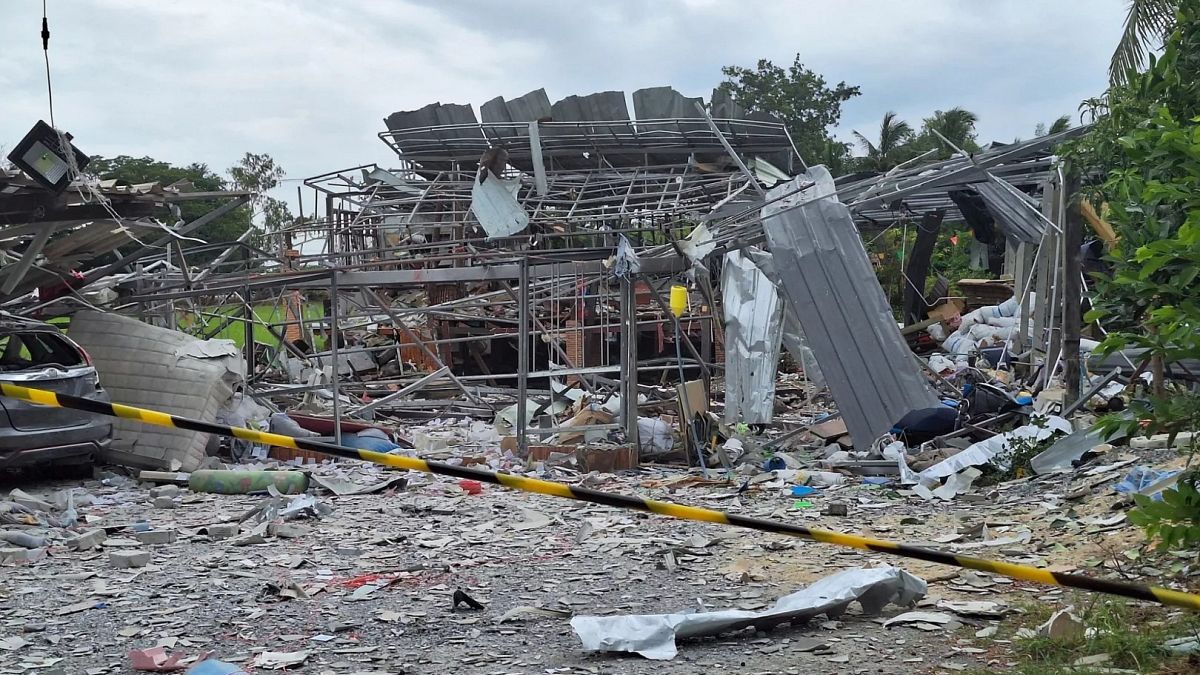

In recent days, the world has witnessed a series of significant and challenging events, from natural disasters to unforeseen accidents, affecting diverse regions across the globe. Despite the adversities, there is a concerted effort from local communities, authorities, and international agencies to respond with resilience and help those impacted move toward recovery.
In Southeast Asia, Thailand experienced a tragic event when an explosion occurred at a fireworks factory located in central Thailand. The blast resulted in the unfortunate loss of at least nine lives. As the region grapples with the aftermath, details about the factory’s licensing remain unclear, prompting further investigations into the safety and regulatory compliance measures in place. Authorities are taking swift actions to ensure the safety and well-being of workers in similar industries, aiming to prevent such occurrences in the future.
Simultaneously, northern Romania has faced severe flash floods, notably in Suceava County. Over 2,500 individuals have been affected, with three people confirmed dead and numerous homes devastated by the deluge. The local government, along with emergency services, is actively involved in relief efforts, providing shelter and necessities to displaced residents. These efforts highlight the community’s unity and determination to rebuild and bring comfort to those who lost homes.
In the United States, a shooting incident in Manhattan stirred a surge of emotions, claiming four lives. The suspect targeted the NFL office but mistakenly entered the wrong elevator, leading to the tragic event. Local authorities and investigators are working tirelessly to piece together the incident, seeking justice and offering support to the affected families. In these challenging times, community support has been vital, assisting each other in healing and recovery.
On a broader geographical scale, an 8.8-magnitude earthquake off Russia’s Kamchatka Peninsula triggered tsunami alerts across the Pacific. Although the quake caused waves up to 4 meters high near the epicenter, concerns for major tsunamis were shared across Japan, the US west coast, and Pacific Islands. The Pacific Tsunami Warning Center, along with local agencies, swiftly provided updates, minimizing risk through effective communication and preparation. While Hawaii faced initial alerts, it was confirmed that a major tsunami was not expected, although coasts remained hazardous due to strong currents. This coordination exemplifies the critical nature of timely and accurate information in addressing natural disaster threats.
Additionally, an event at the Nürnberg Zoo in Germany ignited discussions concerning wildlife management and ethical practices. The zoo made the decision to euthanize 12 healthy baboons, citing a lack of space in their facility, which accommodated only 25 animals despite a population of 43 Guinea baboons. The situation brought attention to the complex interplay between animal welfare and conservation efforts, prompting discussions on sustainable practices in wildlife care.
Such global events remind us of the interconnected nature of our world, where a crisis in one region can resonate across continents. From natural disasters to human-caused incidents, the enduring spirit of communities worldwide shines through adversity. As recovery efforts continue, these stories underscore the importance of preparedness, empathy, and collaborative action in mitigating the impact of future challenges.
Source: {link}
